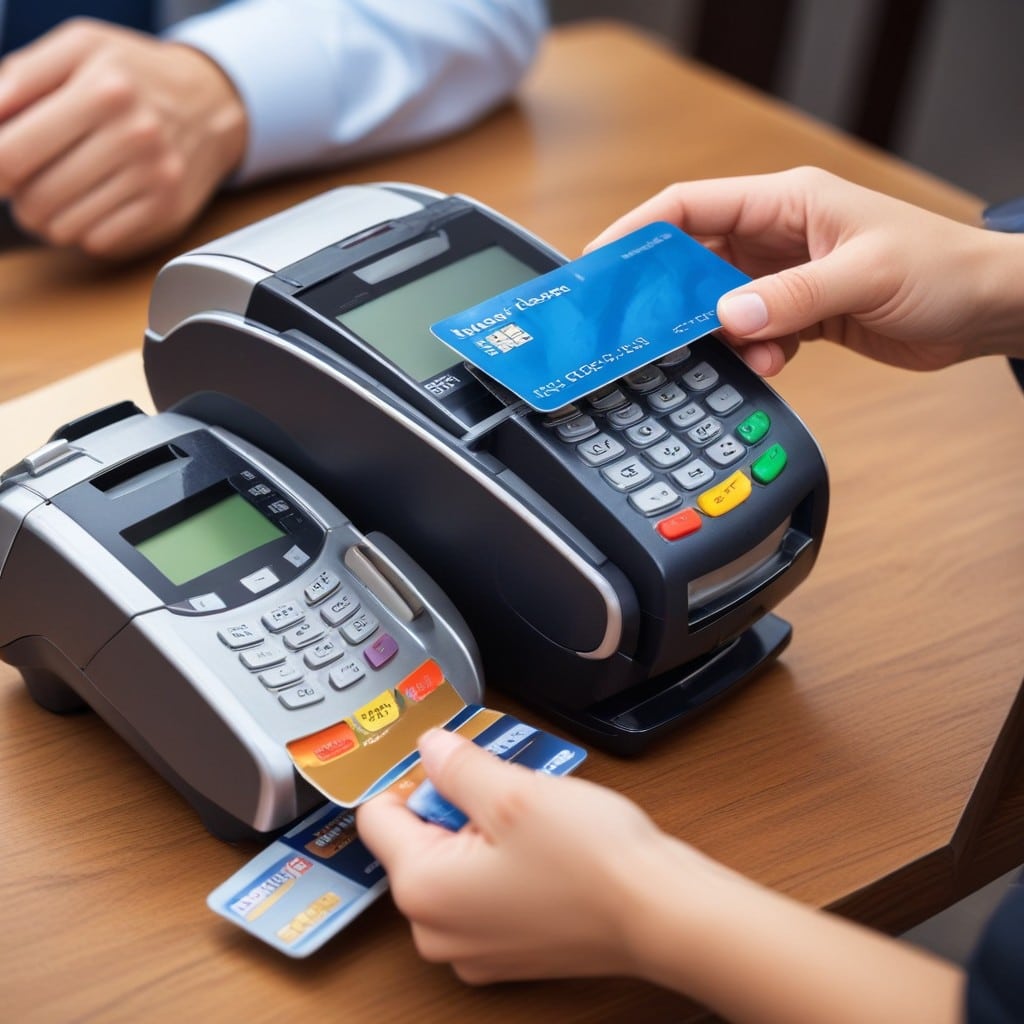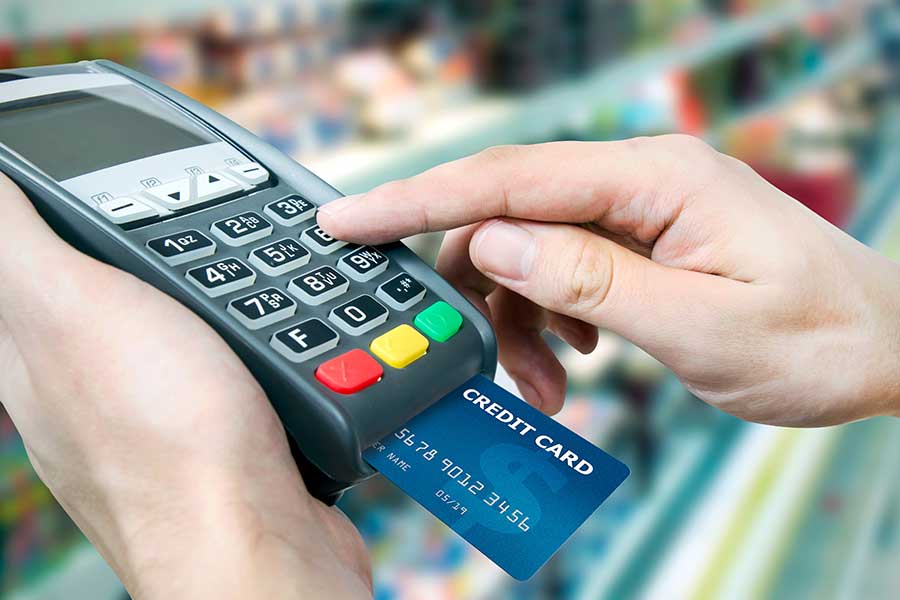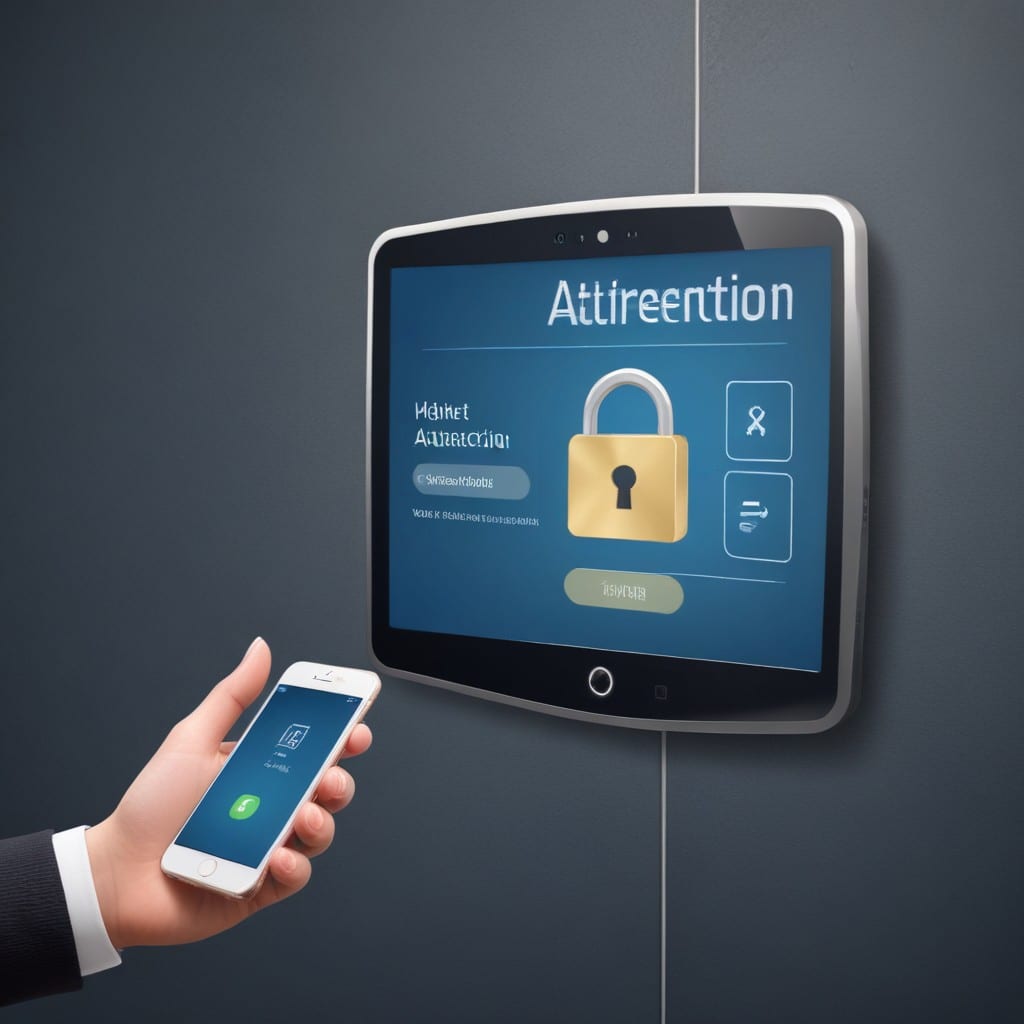In today’s digital marketplace, the ability to accept online payments is not just a convenience but a necessity for businesses aiming to thrive in an interconnected world. Yet, with great opportunity comes significant risk–cyber threats and data breaches are lurking at every corner of the internet. Imagine your customers’ trust evaporating overnight because their sensitive credit card information was compromised on your watch. This isn’t just a hypothetical scenario; it’s a stark reality that many businesses have faced and need is secure credit card processing.
So how can you ensure that when customers click ‘Pay Now,’ they do so with confidence and security? The key lies in mastering secure credit card processing techniques. In this article, we’ll delve into indispensable tips and best practices that will help you safeguard your transactions from prying eyes and malicious hackers. Whether you’re an e-commerce giant or a small business owner venturing into digital sales, these secure credit card processing strategies are vital for maintaining customer trust and ensuring long-term success. Ready to fortify your payment processes? Let’s dive in!
Importance of secure payment processing
In today’s digital landscape, the importance of secure payment processing cannot be overstated. As more businesses embrace e-commerce, ensuring that every transaction is safe from potential threats becomes paramount. For consumers, sharing credit card details online is an act of trust; for businesses, it’s a responsibility to protect these sensitive data points through rigorous security measures. Web credit card processing systems that use advanced encryption technologies and comply with PCI DSS standards foster consumer confidence while safeguarding financial information.

Moreover, secure payment gateways do more than just prevent cyber threats – they also enhance the overall user experience by minimizing errors and maintaining transaction integrity. A seamlessly integrated web credit card processing system means fewer disruptions and higher customer satisfaction rates. Investing in robust security not only protects your business from fraud but also cements your reputation as a trustworthy entity in an increasingly competitive market. Credibility built on trust can translate into repeat customers and long-term success.
## Choose a Reputable Payment Gateway
Selecting a reputable payment gateway is paramount for ensuring secure and seamless credit card transactions. Top-tier gateways like PayPal, Stripe, and Square offer more than just robust security features; they also come with comprehensive fraud detection mechanisms. This shields your business from potential threats, helping to maintain customer trust and satisfaction. Additionally, these platforms continuously update their protocols to adhere to the latest industry standards, providing an ever-evolving layer of protection.
Furthermore, reputable payment gateways often provide advanced encryption technologies that encapsulate sensitive customer data within a secure ecosystem. This not only minimizes the risk of data breaches but also enhances your business’s credibility in the eyes of vigilant consumers who are increasingly aware of online threats. By investing in a trusted payment gateway, you’re essentially investing in the longevity and reputation of your e-commerce venture–ensuring safe transactions today while building resilience for tomorrow’s challenges.
Research reliable payment providers
When it comes to selecting a reliable payment provider, don’t just settle for the first option that pops up on your search engine. Instead, dig deeper into the features they offer and their reliability in handling sensitive financial data. Be sure to check if the providers are PCI-DSS compliant, which ensures they adhere to stringent security standards aimed at protecting cardholder information.
Moreover, delve into reviews and testimonials from other businesses similar to yours. A provider might have an excellent track record with giant corporations but may not necessarily be the best fit for small or medium-sized enterprises. It’s about finding a balance between scalability and personal attention–two elements pivotal for facilitating smooth transactions as you grow. Opting for a reputable and transparent payment processor can go a long way in mitigating risks of fraud, chargebacks, and ultimately protecting your bottom line.
## Implement SSL/TLS Encryption
Implementing SSL/TLS encryption is paramount for securely processing credit card payments online, as it ensures that the data sent between a user’s browser and your server remains confidential and tamper-proof. Without robust encryption in place, sensitive information like credit card details could be intercepted by malicious actors during transmission. By deploying SSL/TLS certificates, businesses can foster customer trust–visually evidenced through HTTPS URLs and padlock icons–signifying a protected environment for transactions.
In addition to safeguarding data integrity and confidentiality, SSL/TLS encryption also plays a crucial role in Search Engine Optimization (SEO). Major search engines like Google prioritize secure websites with HTTPS over those without it, potentially boosting your website’s ranking. Furthermore, the publicized adoption of SSL/TLS enhances brand reputation by demonstrating your commitment to security standards. Therefore, integrating SSL/TLS is not just about compliance or technical necessity; it’s an investment in your business’s credibility and long-term success.

Encrypt data during transactions
Encrypting data during transactions is a fundamental practice for ensuring the security of online credit card payments. By converting sensitive information into an unreadable format, encryption serves as a digital padlock, protecting customer details from hackers and cybercriminals. It’s not just about compliance with regulations like PCI DSS (Payment Card Industry Data Security Standard); it’s about fostering trust with your customers who entrust their private information to you.
One of the most effective ways to implement encryption is through secure socket layer (SSL) certificates or end-to-end encryption protocols. This ensures that even if intercepted, the data remains indecipherable without the appropriate decryption key. Investing in robust encryption technology isn’t merely a cost–it’s a vital ingredient in the recipe for long-term business success and consumer confidence. In the fast-evolving landscape of cybersecurity threats, staying ahead of potential vulnerabilities by encrypting transaction data can make all the difference between preserving your brand’s reputation and suffering irreversible damage.
## Ensure PCI DSS Compliance
Ensuring PCI DSS compliance is paramount for building trust and securing your customers’ sensitive information. One innovative approach to achieving this is by investing in tokenization, which replaces sensitive credit card details with a unique identifier, or token. Unlike encryption which protects data at rest, tokenization ensures that even if intercepted, the stolen data would be useless to cybercriminals. This cutting-edge method significantly minimizes the scope of PCI DSS requirements by reducing the number of systems that store or process credit card information.
Furthermore, regular internal and external security audits are not just a box-ticking exercise; they are essential for proactively identifying vulnerabilities before they can be exploited. Partnering with a qualified security assessor can provide fresh, unbiased insights into your existing systems and processes. Embrace these evaluations as opportunities for growth rather than obstacles, allowing you to tighten up loose ends and adapt to an ever-evolving threat landscape effectively.
Follow industry security standards
Ensuring the security of online credit card transactions hinges on adhering to industry standards like the Payment Card Industry Data Security Standard (PCI DSS). By committing to these guidelines, businesses can not only protect sensitive customer data but also foster trust and credibility. PCI DSS compliance mandates regular audits, implementing advanced encryption methods, and employing secure storage solutions to mitigate risks such as data breaches.
Moreover, staying current with industry standards is essential because cyber threats continuously evolve. Regularly updating software systems and conducting vulnerability assessments help in identifying potential loopholes before they are exploited by malicious entities. Beyond technical safeguards, training staff about cybersecurity best practices ensures a holistic approach to maintaining robust payment processing security that customers can rely on.
## Use Tokenization Techniques
Tokenization techniques have revolutionized the way businesses handle credit card payments, offering an elegant solution to mitigate the risks associated with data breaches. By converting sensitive credit card information into unique tokens, which lack meaningful value outside specific transactions, companies can drastically reduce their vulnerability to cyberattacks. These tokens replace real credit card numbers in the transaction process, ensuring that even if intercepted by malicious actors, they cannot be used for unauthorized purposes.
Moreover, tokenization not only safeguards customer data but also aids in compliance with stringent regulations like PCI-DSS. By storing and processing less actual sensitive information, businesses can streamline their security efforts and focus resources on other critical areas of operation. Implementing tokenization isn’t just about fortifying defenses; it’s about building trust with customers who are increasingly wary of online shopping risks. Embracing this technology signals a company’s commitment to protecting user data and enhances overall consumer confidence in digital transactions.
Replace card data with tokens
Embracing tokenization is a game-changing strategy for securely processing credit card payments online. By replacing sensitive card data with unique, non-sensitive tokens, businesses can significantly minimize the risk of theft and fraud. These tokens have no exploitable value outside their specific contexts; even if intercepted, they are essentially useless to cybercriminals.
Tokenization also simplifies compliance with stringent regulations such as PCI DSS by reducing the amount of sensitive data companies need to handle directly. Moreover, it enhances customer trust and loyalty–consumers are increasingly mindful of data breaches and tend to favor companies that employ robust security measures. Integrating tokenization not only fortifies your defense against cyber threats but also positions your business as a forward-thinking leader in digital security.
## Employ Strong Authentication Methods
One of the keystones to securely processing credit card payments online is the implementation of robust authentication methods. Utilizing multifactor authentication (MFA) can exponentially decrease the likelihood of unauthorized access, even if one layer of security is compromised. When customers are required to provide two or more forms of identification–such as a password, an OTP sent to their mobile device, and biometric verification–the overall security posture strengthens significantly.
Beyond MFA, embracing cutting-edge technologies like tokenization can add another protective barrier. Tokenization replaces sensitive card data with unique identifiers that possess no exploitable value if intercepted. This means even in the unfortunate event of a breach, attackers gain nothing but meaningless tokens instead of real credit card information. Robust authentication paired with innovative techniques like tokenization creates a formidable line of defense against cyber threats, instilling confidence in consumers and fostering trust in your business’s commitment to safeguarding their financial information.
Utilize multi-factor authentication (MFA)
Implementing multi-factor authentication (MFA) represents a crucial step in enhancing the security of your online credit card processing. By requiring additional forms of verification beyond just passwords, MFA significantly reduces the risk of unauthorized access. Often, this involves combining something the user knows (like a password) with something they have (such as a mobile device for SMS codes) or something they are (biometrics like fingerprints). This layered security approach ensures that even if one factor is compromised, unauthorized users won’t easily breach your systems.

Beyond strengthening defenses against cyber threats, highlighting MFA’s implementation can also boost customer confidence in your commitment to protecting their sensitive data. When customers know you’ve invested in robust security measures, including MFA, it not only builds trust but can also differentiate your business from competitors who may neglect such precautions. In today’s digital landscape where data breaches make headlines regularly, leveraging advanced authentication methods isn’t just about compliance; it’s about showing respect for and responsibility towards your customers’ financial safety.
## Regular Security Audits and Updates
Security audits and regular updates are the unsung heroes of robust online transaction systems. Think of them as digital health checkups for your payment gateway, responsible for identifying vulnerabilities before criminals can exploit them. By routinely scrutinizing your security infrastructure through detailed audits, you gain a clear understanding of where your protections might be thin and where they need reinforcement. This proactive approach is not just beneficial but crucial given the constantly evolving nature of cyber threats.
Meanwhile, staying current with updates isn’t merely about having the latest features; it’s fundamentally about fortifying your defenses against new vulnerabilities that emerge regularly. Software developers frequently release patches to neutralize newly discovered weaknesses–missing these can leave glaring holes in your system’s armor. Imagine driving a car with outdated safety features; purchasing upgrades as soon as they’re available isn’t an optional luxury, it’s a necessity for keeping you shielded against modern risks on the cyber highway. Regularly investing time and resources in both security audits and timely updates sets a solid foundation for maintaining trust and reliability in the eyes of your customers–and no price tag trumps that kind of loyalty.
Conduct routine checks and updates
Conducting routine checks and updates is paramount in the dynamic landscape of online credit card processing. Cybersecurity threats evolve constantly, making it essential to ensure all systems are equipped with the latest defenses. Regularly auditing your software, hardware, and payment gateway configurations not only fortifies your data against breaches but also showcases your commitment to maintaining trust with your clientele.
Automating updates can streamline this process, saving valuable time while minimizing human error. In addition to automated updates, consider quarterly comprehensive reviews by cybersecurity experts who can identify potential blind spots that automated systems might miss. By adopting a proactive stance on security through systematic checks and consistent updates, you mitigate risks and build a robust framework that supports secure transactions–essential for maintaining both compliance and customer confidence in today’s ever-evolving digital economy.
## Secure Credit Card Processing Conclusion
Conclusively, the landscape of online credit card processing is both dynamic and fraught with potential pitfalls. Protecting sensitive financial data isn’t just about staying compliant with regulations; it’s also a commitment to your customers’ trust and your business’s longevity. By integrating multiple layers of security–from encryption to sophisticated fraud detection algorithms–businesses can create a resilient environment that repels cyber threats while offering seamless transactional experiences.
However, security should never be considered a static achievement but rather an ongoing process. Regularly updating your systems, educating employees on best practices, and adapting to emerging threats are critical components that make the difference between vulnerability and resilience. In this ever-evolving digital age, staying one step ahead isn’t merely advantageous–it’s essential for any business aiming to thrive online.
Working with United Banc Card of TN
If you find yourself wanting to conquer your restaurant, retail shop, look no further thanUnited Banc Card of TN. With their innovative solutions and trustedPOS System services, they will guide you towards financial success. Whether you are asmall business owneror an individual looking to manage your finances better, United Banc Card of TN has the tools and expertise to help. Call us today @615-476-0255


